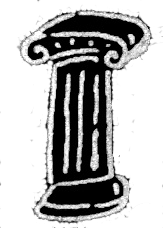Crimes against humanity
Cruelty between people— atrocities, torture, genocide—is part of the spectrum of human behavior that must be as old as our species. In just the last hundred years we have witnessed up close and from afar the holocaust, the Korean war, the Vietnam war, the Balkan wars, the Iraq war, the Afghanistan wars, the Syrian war, the ISIS incursions, and now Ukraine. I would also include terrorist attacks, sex trafficking, the violent and sexual abuse of children, the seemingly endless mass shootings, racist inspired murders and on and on.
The aftermath, the traumas visited on victims, are of course more acute and more severe than on those of us who only read and watch the news. But I believe even distant on-lookers also suffer a far more subtle and deeply disguised trauma, a kind of implicit social derangement.
The evidence is plentiful. In American society we have been seeing emerge, as if from a dark undersea layer, a rising tide of anger and hate and of malignant disinformation. Movies and television programs nowadays contain violence and destruction weirdly and alarmingly parallel to what we see and have seen in all the war-torn countries listed above. Children’s video games feature murder as a fun sport. Online bullying is sending children and adolescents into despair and even suicide. The planet itself, our biosphere, is entering a stage of fierce and perhaps fatal destruction at the hands of its most technologically advanced creatures, we who fiddle as our home burns.
This should be a warning to us.
All who have suffered a trauma that changes one’s life course—and I count myself among them—understand the force and impact of terror. Our life, if we are fortunate, runs on a path, sometimes broken, sometimes interrupted, sometimes even lost, this path of self healing. We learn to care because self care is life saving. Beating back violence in all its multifarious forms comes to define us. Becomes our life mission however small the effort or however heroic. Or we turn into monsters and take up the knife.
This may be a radical perspective. But it is very ancient. This trauma-inflected perspective fueled all faiths, powered the source of all religions. Every savior credence derives from pain exalted and surmounted. But that suffusion-honored suffering can—and too often has—devolved into hate and ignominy and war. In effect, trauma is a double-edged sword: leaving survivors capable of deeds, small and big, that nurture others or solve social discord or lead others into acts of good. But trauma can also leave some fused to the violence or the misdeeds delivered to them so that they identify with the perpetrator and become one themselves. It is a part of the vast human dilemma.
How do we retrieve and honor the lessons of trauma while rescuing, or at least restraining, the fallen and evil-inflicted?
We have an enormous burden to mitigate. We must listen to survivors—survivors of every stripe and every kind of trauma. Even the monsters have a hidden story that would destroy them. Trauma lies at the core of human cruelty as well as human gentility. The core of humanism, the desire to be free from want, the end of fear—all begins with the experience of pain and its reconciliation. But the crimes against humanity remain the explosive evidence of traumas inverted. Much else measures in, of course. But trauma is the core.
A fellow student in medical school one day looked up from his textbook and, in his moment of terrible realization, cried out as if shouting to the world: “It’s all about disease!”
Yes, disease and its redress may be the ultimate answer.

